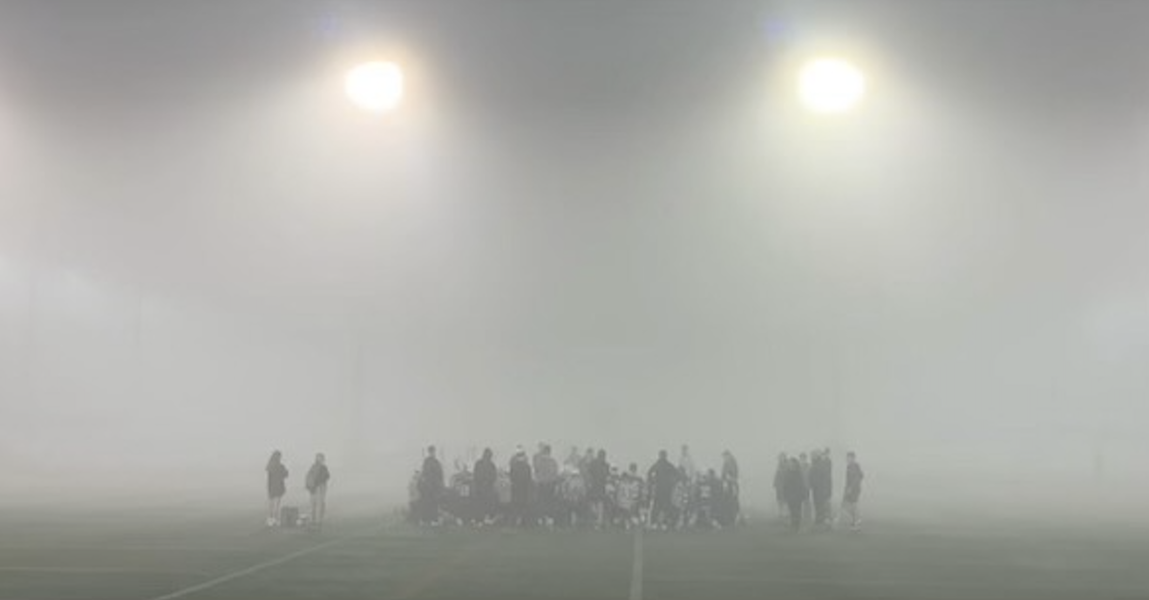It was New Year’s Eve, red moon rising, sixteen of us around a Kenyan campfire. Family, friends. I had asked everyone to share an important piece of advice they had received, how it impacted their lives. Each told a story, context. What we chose to share was as personally revealing as the advice was profound. Liv is a 5’4’’ woman in a 6’2’’ man’s world, outnumbered 4-1 at West Point, in constant competition for rank, position, goalie for the co-ed Water Polo team. “My captain pulled me aside last year, and told me that stress is an earned privilege,” said Liv, eyes intense. And she left it at that, not feeling the need to explain herself.
Overall: “The wicked leader is he who the people despise. The good leader is he who the people revere. The great leader is he who the people say: We did it ourselves,” whispered Xi to himself, repeating the wisdom of Lao Tzu, China’s ancient philosopher. It had been a difficult few years, and the stresses Xi faced were rising. He picked up a stone, smoothed by the ages, examined it closely. Perfection. As it skipped across the lake, he smiled. Ripples. Cause and effect, action, reaction. “Nothing is softer or more flexible than water, yet nothing can resist it,” wrote Lao Tzu, his words eternal, Xi’s ripples gently fading into nothingness, the glassy surface restored. “The words of truth are always paradoxical,” whispered Xi to himself. Shortly after ascending to power in 2012, he told young entrepreneurs and students to “dare to dream, to bravely chase their dreams and strive to fulfill them.” Xi explained that “their ambitions will make China great.” But that was back when globalization appeared inexorable. Before Trump. Trade wars, Huawei, high-tech chip restrictions, the peak of China’s working age population. Xi abolished the One-Child Policy in 2016, yet his nation’s fertility rate continued its inexorable decline. His repeated efforts to stimulate the economy sparked speculative property booms which in turn leveraged the economy in ways unprecedented in human history. The economy now appeared sluggish, its dynamism fading, unemployment rising, youth disillusioned. “Engrave the blood of your youth on the monuments of history, just as our fathers did,” said Xi to China’s youth, increasingly desperate to revitalize the nation and its economy. “Eat bitterness,” he ordered them, in frustration. Not the sort of wisdom worthy of Lao Tzu who wrote, “Be content with what you have; rejoice in the way things are. When you realize there is nothing lacking, the whole world belongs to you.” Xi picked up another stone, an agitation growing. “Governing a great nation is like cooking a small fish - too much handling will spoil it,” he whispered, unsure, uncertain, as ripples silently crept outward.
Week-in-Review: Mon: MLK holiday in the US, PBOC held key 1y MLF unch (10bp cut exp), DPP candidate wins Taiwanese presidential election / limited response from China, Iran attacks areas of Iraq/Syria in retaliation for recent bombings, Indonesia expts -5.76% (-8.39%e) / impts -3.81% (0.22%e), Germany 2023 GDP -0.3% as exp, EU IP -6.8% (-6%e), S&P closed; Tue: Fed’s Waller calls for careful cuts – more hawkish than mkt pricing, Trump wins Iowa caucus (DeSantis 2nd / Haley 3rd), Houthi’s hit US owned vessel, spending bill to avert shutdown passes first Senate hurdle, Japan PPI 0% (-0.3%e), Germany CPI 3.8% as exp, UK emp chg -24k (-13k exp), ECB 3y CPI exp 2.2% (2.4%e), US Empire mfg -43.7 (-5.0e), Canada CPI 3.4% as exp / trimmed 3.7% (3.4%e), S&P -0.4%; Wed: ECB’s Lagarde said cut is likely to come in the summer but aggressive mkt pricing is not helping inflation / Knot says the more easing the market expects then the less likely it will happen, China population dropped for 2nd year, SNB says no longer focused on FX sales to strengthen CHF, China 4Q GDP 5.2% (5.3%e) / IP 6.8% (6.6%e) / Ret sales 7.4% (8.0%e), UK CPI 4.0% (3.8%e) / Core 5.1% (4.9%e) / RPI 5.2% (5.1%e), EU final CPI 2.9% as exp / Core 3.4% as exp, US ret sales 0.6% MoM (0.4%e) / Control group 0.8% (0.2%e), US impt prices -1.6% (-2%e), US NAHB housing mkt index 44 (39e), S&P -0.6%; Thu: US struck Houthi missile launchers / Houthi’s vow to keep attacking ships in the Red Sea, Pakistan carried out retaliation strikes against “terrorist hideouts” in Iran, TSMC forecasts 25% revenue growth in ’24, Fed’s Bostic urges caution on rate cuts / questions the breadth of labor mkt strength, weak 20y JGB auction drives further bear steepening, ECB mins show the GC felt mkt pricing reflected significant optimism that is inconsistent with staff projections, US senate passes temporary finding bill to avert gov’t shutdown – now to the house, Fed’s BTFP program continues to grow ahead of its closing on 3/11,NZ house sales 14.1% (12.2%p), Japan machine orders -5% (0.1%e), Australia Emp change -65.1k (15.0k e) / unemp rate 3.9% as exp / participation rate 66.8% (67.1%e), S. Africa mining production 6.8% (3%e), US Housing starts 1.460m (1.425m exp) / building permits 1.495m (1.477m exp), US Philly fed -10.6 (-6.5e), US init claims 187k (205k exp) – 2nd lowest in the past 40y, S&P +0.9%; Fri: Fed’s Harker authors paper supporting importance of ‘soft data’, China’s largest brokerage suspends short selling for some clients, SNB’s Jordan says infl forecast shows no need for further hikes, Japan CPI 2.6% (2.5%e) / Core 3.7% as exp, Germany PPI -8.6% (-8%e), UK ret sales -2.4% (1.1%e) / core ret sales -2.1% (1.4%e), US Mich Sentiment 78.8 (70.1e) / 1y infl exp 2.9% (3.1%e) / 5-10y infl exp 2.8% (3%e), US Existing home sales 3.78m (3.83m e), S&P +1.2%.
Weekly Close: S&P 500 +1.2% and VIX +0.60 at +13.30. Nikkei +1.1%, Shanghai -1.7%, Euro Stoxx -1.6%, Bovespa -2.6%, MSCI World +0.2%, and MSCI Emerging -2.5%. USD rose +9.6% vs Bitcoin, +8.4% vs Ethereum, +2.2% vs Yen, +2.0% vs South Africa, +1.8% vs Sweden, +1.6% vs Brazil, +1.3% vs Australia, +1.3% vs Mexico, +0.6% vs Russia, +0.5% vs Euro, +0.4% vs Indonesia, +0.4% vs Sterling, +0.4% vs Turkey, +0.4% vs China, +0.2% vs India, +0.1% vs Canada. Gold -1.1%, Silver -2.6%, Oil +1.0%, Copper +1.2%, Iron Ore -3.6%, Corn -0.3%. 10yr Inflation Breakevens (EU flat at 1.99%, US +6bps at 2.34%, JP +11bps at 1.30%, and UK -2bps at 3.47%). 2yr Notes +24bps at 4.39% and 10yr Notes +18bps at 4.12%.
2024 Year-to-Date Close: Argentina +24.6% priced in US dollars (+26.4% priced in pesos), Colombia +5.1% priced in US dollars (+6.6% priced in pesos), Hungary +4.9% in dollars (+6.5% in forint), Turkey +4.7% in dollars (+7% in lira), Russia +4% (+2.2%), Japan +2.2% (+7.5%), Greece +2% (+3.6%), NASDAQ +2% in dollars, S&P 500 +1.5% in dollars, UAE +1.4% (+1.4%), Denmark +0.8% (+2.5%), MSCI World +0.2% in dollars, Czech Republic +0% (+2%), Saudi Arabia -0.1% (-0.1%), Philippines -0.2% (+0.8%), India -0.4% (-0.5%), Malaysia -0.6% (+2.2%), Ireland -0.6% (+1%), Venezuela -1.1% (-0.4%), Italy -1.8% (-0.2%), Indonesia -2% (-0.6%), Canada -2.1% (-0.2%), Netherlands -2.6% (-1%), Germany -2.7% (-1.2%), Euro Stoxx 50 -3.2% (-1.6%), Switzerland -3.3% (+0.1%), France -3.8% (-2.3%), Spain -3.9% (-2.4%), Taiwan -4% (-1.4%), Finland -4.1% (-2.5%), UK -4.1% (-3.5%), Russell -4.1% in dollars, Austria -4.2% (-2.6%), Singapore -4.3% (-2.7%), Mexico -4.3% (-3.4%), New Zealand -4.5% (-0.9%), Belgium -5.6% (-4.1%), Israel -5.6% (-1.1%), Australia -5.7% (-2.2%), Norway -5.8% (-2.2%), Thailand -6% (-2.4%), China -6% (-4.8%), Brazil -6.2% (-4.9%), Poland -6.5% (-4.7%), Portugal -6.6% (-5.1%), Sweden -8.1% (-4.1%), Chile -8.9% (-5.7%), South Africa -9.6% (-5.9%), Korea -10.2% (-6.9%), and HK -10.3% (-10.2%).
Altitude: “Do you mind if we zoom out a bit and look at this from a somewhat different angle,” I asked the Chief US Economist who had come to see the team at our offices in Stamford. The presentation had focused primarily on topics that dominate discussions on trading floors across Wall Steet. Will the Fed cut rates in March or May? Will Powell meet market expectations or fall short? Will inflation grind its way lower by a few tenths of a percent? At any point in time, the market tends to fixate on a few key questions. And it’s always good to know what they are.
Altitude II: As of mid-Dec, the Fed signaled it expected to cut rates 0.75% in 2024. As of Fri, the market expects five 25bp cuts this year, and a nearly 50% chance of a sixth. The Chief US Economist had explained the incremental upside and downside risks to all these things. But by the time you’ve been doing this for a few decades, whether the Fed will cut rates at one meeting or the next seems trivial. Handicapping an incremental 25bps in rates, higher or lower, over the next year seems not terribly worth the effort, particularly given the improbability of being right.
Altitude III: “Stocks are basically at all-time highs,” I said. “Credit spreads are tight despite the rate shock. House prices remain extraordinarily high. And supposedly private equity has a lot of dry powder,” I continued. “Sentiment isn’t wildly bullish -- Ukraine, Gaza, and China risks abound,” I said. “A Fed pivot seems like an inadequate explanation for why risk assets are so strong. And flows into money market funds have been massive. Where has this cash come from with risk assets at the highs? Could it be as simple as there is just too much money in the world?”
Altitude IV:“Could it be that we’re all obsessing over whether the Fed cuts three times or four or five in the next year, when the real thing that is driving markets is how much money is being created?” I asked the US Economist. “Over the past year or so, we generally saw outflows from stocks across our private wealth clients,” answered the US Economist. “But then stocks went back up without them fully participating, so perhaps stocks just got marked higher without any big inflows, and our client’s cash is sitting in money market funds now,” said the US Economist.
Altitude V: I headed to Wyoming for MLK, a little altitude. Our deficit remains extraordinary, and the Treasury’s soaring interest expense is being funded by more borrowing. That freshly printed money keeps flowing into the economy, as does the infrastructure stimulus. Biden keeps forgiving student debt. Another tax cut looks likely, bipartisan support for that. And the Fed still seems to be seriously talking about rate cuts, with asset prices at all-time highs, unemployment claims dropping to near 40yr lows, and consumer confidence reclaiming Sept 2021 levels.
Altitude VI: Our hyper financialized economy requires strong asset prices to function well. When they are weak, the economy requires fiscal stimulus to sustain growth. This dynamic creates a tendency to ratchet up both asset prices and nominal GDP. High asset prices require rising nominal GDP to justify valuations. If asset prices fall, stimulus boosts nominal GDP, and monetary accommodation lifts asset prices - the ratchet in action. This intensifying dynamic will also lead to upward inflationary pressures. And the broad implications of all this are interesting to consider in a market where most people are focused on whether the Fed cuts in March or May.
Anecdote: “The game of speculation is the most uniformly fascinating game in the world. But it is not a game for the stupid, the mentally lazy, the person of inferior emotional balance, or the get-rich-quick adventurer - they will die poor,” said Jesse Livermore, the speculator made famous by Edwin Lefevre’s Reminiscences of a Stock Operator, 1923. It was the first and best book I’ve read on speculation. Livermore was my Lao Tzu. “Wall Street never changes, the pockets change, the suckers change, the stocks change, but Wall Street never changes, because human nature never changes,” said Livermore, and I became utterly obsessed with studying previous bull and bear markets. “Trends come like a series of ocean waves, bringing the high tide when things are good and, as conditions recede, the low tide appears. These trends come unexpectedly, unpredictably, and they must be weathered with temperance, poise, and patience - good or bad.” His musings formed the basis for my interest in systematic trend-following. “It isn’t a hunch but the subconscious mind, which is the creative mind, at work. That is the mind which makes artists do things without their knowing how they came to do them. Perhaps with me it was the cumulative effect of a lot of little things individually insignificant but collectively powerful,” explained Livermore, describing the magic we find on long quiet walks. “Instead of hoping he must fear and instead of fearing he must hope. He must fear that his loss may develop into a much bigger loss, and hope that his profit may become a big profit,” said Jesse. It is a paradox that exposes a fatal flaw in the human psyche when it comes to speculating. “A loss never bothers me after I take it. I forget it overnight. But being wrong - not taking the loss - that is what does damage to the pocketbook and to the soul.” Years later I learned Livermore died of a self-inflicted gunshot wound, broke, alone, his soul damaged beyond repair. It was his final lesson. Teaching us to show the utmost respect to the most uniformly fascinating game in the world.
Good luck out there,
Eric Peters
Chief Investment Officer
One River Asset Management
Disclaimer: All characters and events contained herein are entirely fictional. Even those things that appear based on real people and actual events are products of the author’s imagination. Any similarity is merely coincidental. The numbers are unreliable. The statistics too. Consequently, this message does not contain any investment recommendation, advice, or solicitation of any sort for any product, fund or service. The views expressed are strictly those of the author, even if often times they are not actually views held by the author, or directly contradict those views genuinely held by the author. And the views may certainly differ from those of any firm or person that the author may advise, converse with, or otherwise be associated with. Lastly, any inappropriate language, innuendo or dark humor contained herein is not specifically intended to offend the reader. And besides, nothing could possibly be more offensive than the real-life actions of the inept policy makers, corrupt elected leaders and short, paranoid dictators who infest our little planet. Yet we suffer their indignities every day. Oh yeah, past performance is not indicative of future returns.





